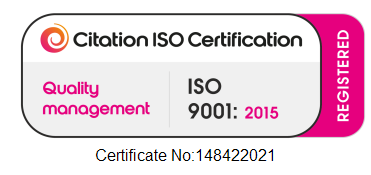Data integrity in electronic Clinical Outcome Assessment (eCOA) implementation is ensured by following the ALCOA+ principles: Attributable, Legible, Contemporaneous, Original, Accurate, plus Complete, Consistent, Enduring, and Available. These guidelines provide a framework for maintaining high-quality, regulatory-compliant clinical trial data that can withstand scrutiny and support reliable research outcomes.
Introduction to Data Integrity in Clinical Trials
In today's complex clinical research landscape, data integrity stands as the cornerstone of credible, reliable, and actionable trial outcomes. As clinical trials increasingly adopt digital solutions, ensuring the integrity of electronically collected data has become more critical than ever.
What is data integrity?
- The completeness, consistency, and accuracy of data throughout its lifecycle
- A fundamental requirement for regulatory compliance
- Essential for valid scientific conclusions
Why does it matter?
- Prevents invalid study results
- Avoids regulatory rejection
- Saves resources
- Protects patients from harmful treatment decisions
Electronic Clinical Outcome Assessments (eCOA) have revolutionised how patient data is collected in clinical trials. These digital tools capture patient experiences, clinician observations, and performance metrics through validated electronic interfaces.
The challenge: Implementing eCOA solutions without proper data integrity safeguards can undermine their benefits.
The solution: ALCOA principles – established as the gold standard for data integrity, providing a systematic framework for ensuring clinical trial data remains trustworthy from collection through analysis and regulatory submission.
What Are the ALCOA Principles?
What does ALCOA stand for in clinical trials?
ALCOA is an acronym representing five fundamental principles that define data integrity in clinical research:
| Principle | Definition | eCOA Application |
| Attributable | Data must be traceable to its origin |
• User identification
• Date and time stamps
• Device information
• Location data
|
| Legible | Data must be readable and permanently recorded |
• Clear presentation
• Consistent formatting
• Proper character rendering
• Accessibility for reviewers
|
| Contemporaneous | Data must be recorded at the time of observation |
• Real-time entry capabilities
• Accurate time-stamping
• Prevention of backdating
• Immediate capture
|
| Original | First recording must be preserved in its initial form |
• Original data preservation
• Change documentation
• Complete audit trails
• Source data primacy
|
| Accurate | Data must correctly reflect the observation |
• System validation
• Error-checking
• Verification processes
• Quality control
|
Why were the ALCOA principles developed?
The ALCOA principles were developed in the 1990s in response to growing concerns about data integrity in pharmaceutical research. As clinical trials became more complex and global, the need for standardised data quality guidelines became apparent.
- Increasing complexity of clinical trials
- Globalisation of research
- Growing regulatory scrutiny
- Need for standardised approaches
Regulatory authorities recognised that reliable data forms the foundation of all regulatory decisions. Without trustworthy data, it becomes impossible to:
- Evaluate medicine safety and efficacy
- Make informed benefit-risk assessments
- Protect public health
- Ensure scientific validity
The Evolution to ALCOA+
What additional principles does ALCOA+ include?
As electronic data systems became more sophisticated and regulatory scrutiny increased, the original ALCOA principles were expanded to create ALCOA+ (sometimes called ALCOA-C).
The four additional principles:
Complete
- Data must be whole and comprehensive, with no omissions
- eCOA implementation requires:
- Mandatory field validation
- Progress tracking mechanisms
- Completion reminders
- Data reconciliation processes
Consistent
- Data should be collected and maintained in a stable, reliable manner
- Consistency in eCOA systems depends on:
- Standardised collection methods
- Uniform data definitions
- Harmonised processes across sites
- Compatible technologies
Enduring
- Data must be preserved in a readable format for the required retention period
- This principle addresses long-term accessibility through:
- Appropriate storage technologies
- Format migration strategies
- Backup and recovery systems
- Data preservation protocols
Available
- Data should be accessible when needed throughout its lifecycle
- Availability in eCOA systems requires:
- Appropriate access controls
- Efficient retrieval mechanisms
- Disaster recovery capabilities
- System uptime guarantees
Implementing ALCOA Principles in eCOA Systems
Modern eCOA systems employ multiple mechanisms to ensure data attributability:
- Multi-factor authentication
- Biometric verification where appropriate
- Unique user credentials
- Session timeouts
- User identification
- Date and time stamps
- Original data entries
- All modifications with reasons
- Complete change history
- Unique user identification
- Password verification
- Signature meaning documentation
- Non-repudiation mechanisms
- Data entry permissions
- Monitoring rights
- Investigator approvals
- System administration
- Automated time stamping
- Real-time data transmission (when connectivity allows)
- Entry window controls
- Patient engagement features
- Edit Checks: Real-time validation rules identify potential errors
- Standardised Response Options: Controlled vocabularies eliminate inconsistencies
- Branching Logic: Dynamic questionnaires adapt based on previous responses
- Data Visualisation: Graphical representations help users verify entries
UK Regulatory Requirements for eCOA Data Integrity
The UK has established specific requirements for electronic data in clinical trials:
MHRA GxP Data Integrity Guidance
The Medicines and Healthcare products Regulatory Agency (MHRA) provides comprehensive guidance on data integrity that applies to all GxP-regulated activities, including clinical trials. Key requirements include:
- Risk-based approach to data integrity management
- Data governance systems throughout the data lifecycle
- Organisational culture that values data integrity
- Design of systems and processes to ensure data quality
- Regular data integrity audits and assessments
- Validated computerised systems
- Appropriate access controls
- Complete audit trails
- Data backup and recovery procedures
- Training for all users
- Data retention compliance
For detailed information, refer to the MHRA's 'GXP' Data Integrity Guidance and Definitions.
UK Clinical Trials Regulation
Following the UK's exit from the EU, the UK has maintained high standards for clinical trials through:
- The Medicines for Human Use (Clinical Trials) Regulations
- Good Clinical Practice (GCP) requirements
- Alignment with ICH E6(R2) principles
System Validation Requirements
Validation of eCOA systems must follow a structured process:
Planning Phase
- User Requirements Specification
- Functional Specifications
- Risk Assessment
- Validation Plan
Execution Phase
- Installation Qualification
- Operational Qualification
- Performance Qualification
- Validation Summary Report
Maintenance Phase
- Change Control
- Periodic Review
- Revalidation when needed
Best Practices for Maintaining ALCOA Compliance
Essential Standard Operating Procedures
| SOP Category | Key Elements |
| User Management |
• Access control
• Authentication procedures
• Role definitions
• Deactivation processes
|
| Data Handling |
• Entry procedures
• Verification steps
• Change management
• Error correction
|
| System Management |
• Backup protocols
• Recovery procedures
• Archiving methods
• Business continuity
|
| Quality Assurance |
• Validation approach
• Monitoring procedures
• Audit processes
• Issue management
|
Handling Data Integrity Issues
When data integrity issues arise, follow this systematic approach:
1. Issue Detection and Reporting
- Implement automated data quality checks
- Conduct regular audit trail reviews
- Establish clear reporting channels
- Perform periodic system assessments
2. Root Cause Analysis
- Determine what happened
- Identify how it happened
- Understand why it happened
- Assess whether it has happened before
- Evaluate potential impact
3. Corrective and Preventive Actions (CAPA)
- Address the specific issue immediately
- Implement corrective actions for root causes
- Develop preventive actions to avoid recurrence
- Verify effectiveness of all actions
- Document all steps taken
4. Documentation and Communication
- Record issue details and impact assessment
- Document investigation findings
- Detail all corrective and preventive actions
- Provide implementation evidence
- Obtain management approval
Conclusion
Implementing ALCOA principles in electronic Clinical Outcome Assessment systems is not merely a regulatory requirement—it's a fundamental best practice that enhances the scientific validity and reliability of clinical trial data.
- Enhanced confidence in trial results
- Streamlined regulatory submissions
- Reduced data management costs
- Accelerated decision-making
- Improved patient safety
- Stronger scientific conclusions
The transition from paper to electronic data collection offers significant advantages for ALCOA compliance, but only when systems are properly designed, validated, and operated. Purpose-built devices, like those offered by STK Life, incorporate the technical features necessary to maintain data integrity throughout the clinical trial lifecycle.
As clinical research continues to evolve with new technologies and decentralised approaches, the ALCOA+ principles will remain the essential framework for ensuring data integrity. Organisations that embrace these principles as core values rather than mere compliance requirements will be best positioned to conduct high-quality research that advances medical knowledge and improves patient outcomes.
Summary
The ALCOA+ principles (Attributable, Legible, Contemporaneous, Original, Accurate, Complete, Consistent, Enduring, Available) provide the essential framework for ensuring data integrity in electronic Clinical Outcome Assessment (eCOA) implementation. By incorporating these principles into eCOA systems through proper authentication, audit trails, real-time data capture, and validation checks, clinical trial sponsors can achieve regulatory compliance, improve data quality, and enhance the reliability of research outcomes. Electronic systems offer significant advantages over paper-based methods by reducing human error, providing comprehensive audit trails, and enabling robust data security measures.
Need purpose-built smartphones, tablets, and wearables for your eCOA and ePRO clinical trial data collection? Contact STK Life today for a consultation on our customised provisioned devices designed specifically for clinical research, ensuring the highest standards of data integrity while meeting your trial's unique requirements.

